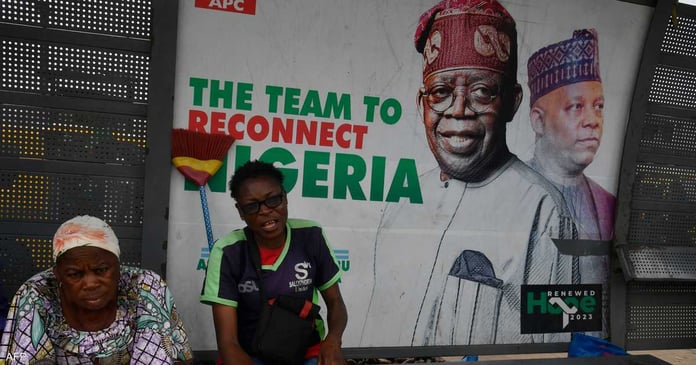On his first day in office, Tinubu delivered on his campaign promise and announced an end to the long-standing arrangement that allowed Nigerians to get cheap petrol.
Despite being the continent’s largest economy and rich in oil, Nigeria’s refining capacity is still limited. For years, it has been selling crude oil and buying gasoline, which it supplies at a subsidized price for its domestic market, draining revenues and currencies and contributing to soaring debts, according to a report by the AFP.
None of Tinubu’s predecessors managed to get rid of this hugely popular system that had weighed on the public treasury for decades. Last year, the country spent more than 96% of its revenue on servicing debt.
After his inauguration on Monday, Tinubu said “the fuel subsidy is over.” Then the price of petrol tripled to around 540 naira ($1.20) at government-run petrol stations on Wednesday as Nigerians struggled to make ends meet with inflation over 20 percent .
But analysts believe Tinubu has made the necessary political calculations to follow in the footsteps of the previous administration and phase out fuel subsidies.
“the best moment”
Tunde Agilay of Nigerian consultancy SBM said it was “only a matter of time before they stop the subsidy… From an economic point of view, it was a smart and logical move. Politically, it’s a sensitive decision… but it’s the best time.” to do it. In the end, under this government, people will have forgotten that.
Aguilay added that the president now has the opportunity to introduce reforms over the next four years to mitigate the consequences.
The main problem with the subsidy system was that it left ample room for embezzlement by people who falsified documents to obtain subsidies for products they had never imported. Others could have bought cheap fuel in Nigeria and sold it at higher prices in neighboring countries.
This, Aguilay said, “explains why daily consumption is so high in Nigeria.”
After the subsidy removal announcement, there was confusion over when the measure would come into effect, and the seemingly sudden change caused panic.
In the long term, the move will save billions of dollars, encourage investment and reduce pressure on the foreign exchange market, said Abayomi Adebayo, professor of economics at Obafemi Awolowo University in Ife, Australia. northeast of Lagos.
World Bank figures show that more than 80 million people live below the poverty line in Nigeria. The state spends more on fuel subsidies than on struggling sectors such as health and education, and the World Bank and International Monetary Fund have recommended ending subsidies to promote development.
expensive move
Adebayo predicted there would be “a rise in inflation in the short term”, but stressed the importance of looking at the bigger picture, saying it was “difficult because people are more concerned about immediate income.
He also said the subsidy no longer benefits the country’s poorest.
The World Bank also said that in practice, “the poor in Nigeria purchase only 3% of the total volume of subsidized gasoline”. The subsidy mainly benefited well-to-do Nigerians who owned cars and could afford gasoline every day.
Over the past decade, authorities have repeatedly tried to scrap the subsidy, only to back down in the face of public anger stoked by unions. The military even clashed with demonstrators protesting fuel prices in 2012.
A group of trade unions under the Nigeria Labor Congress (NLC) rejected the latest statement and called for its withdrawal. The union said that if by June 7 the Nigerian National Petroleum Company Limited refused to reverse its decision to raise petrol prices, the workers’ congress would stop providing services and “start protests in the whole country until this is respected”.
Read the Latest World News Today on The Eastern Herald.


